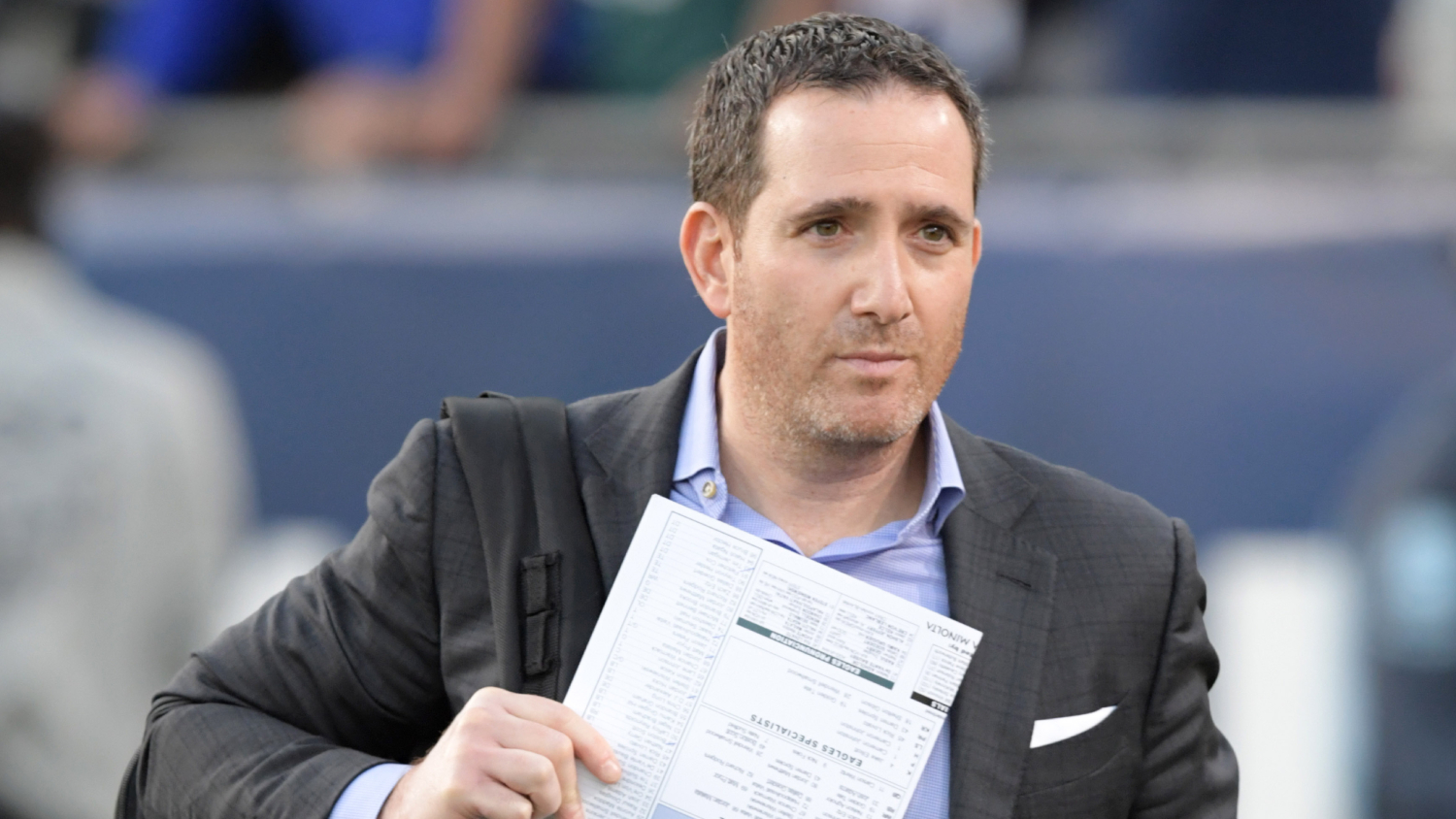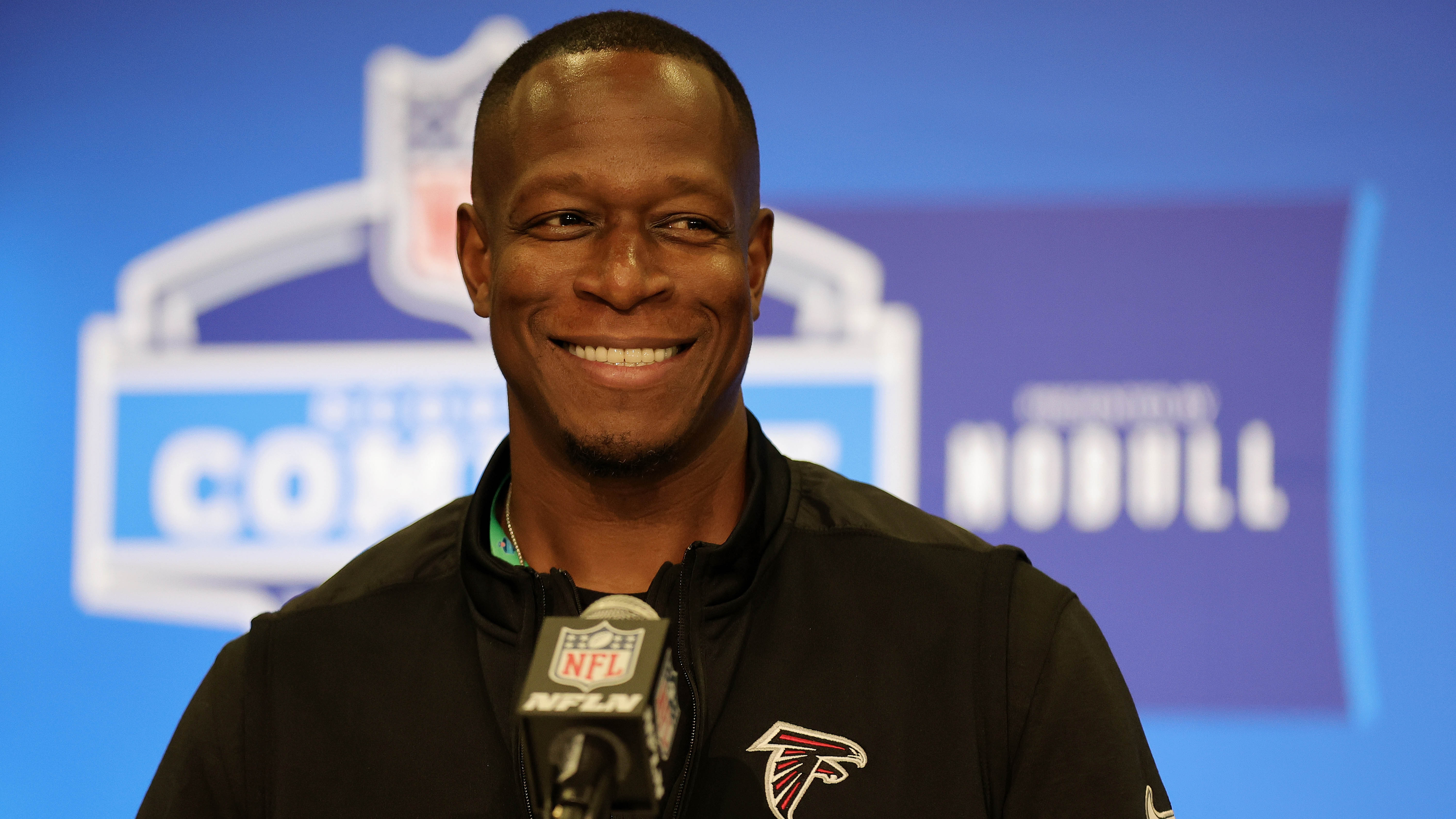
A few things happened soon after Malcolm Jenkins signed with the Eagles as a free agent on March 11.
He buried himself in the intricacies of Billy Davis’ defense. He pored over hours of film. He picked the brains of his new teammates. He met endlessly with his coaches. He learned all he could and then he learned some more.
And once he had a pretty good idea what was going on, he did an interesting thing.
He started making suggestions on what to change.
Before he played a single snap in an Eagles uniform, Jenkins began offering ideas and tweaks to his coaches. Little things that he believed could make Davis’ scheme even better.
“I think he's done a great job with our staff of asking a lot of interesting questions in terms of, ‘Hey, maybe we can fit it this way,’ as opposed to the way we are fitting it,” head coach Chip Kelly said.
Jenkins, a native of Piscataway, New Jersey, spent his first five years with the Saints, winning a Super Bowl ring as a rookie in 2009.
NFL
Along with five years of experience, a Super Bowl ring and a quick mastery of a new defense comes respect from the coaching staff.
And Jenkins learned very quickly that the suggestions he was making were actually being heard.
“That is rare,” Jenkins said. “That makes me feel like it’s partly my defense, and every player should feel the same way, because everybody has a voice.
“There’s open dialogue. If they don’t take your suggestion, they’ll give you a reason why, and that way it’s not just a dictatorship, but you understand the defense a little better and you feel like it’s partly yours, and when everybody feels like they have a hand in it, people buy in more, guys know the ins and outs, and it just makes us that much more dynamic.”
Jenkins is the new guy – the only projected starter on defense who wasn’t with the Eagles last year. But he’s been accepted and embraced very quickly by his coaches and his teammates.
“I think he's really fit in, maybe better than anybody on our staff thought he was going to fit in, just because we were not familiar with him,” Kelly said. “But he's a football player and he adds a lot of stability to the back end out there.
“He's really done a great job of stepping in at that other safety spot opposite Nate [Allen] and being real decisive in terms of what he's doing. He's been a great leader in the locker room and meeting rooms, has a really, really good football knowledge.”
Really, really good football knowledge that his coaches aren’t too stubborn to consider.
Jenkins said it’s big when coaches listen to their players instead of just running their scheme and shrugging off the opinions of the guys who are actually out there playing.
“It’s huge,” Jenkins said. “I’ve been around a lot of prideful coaches that don’t want to hear anything, so it’s a huge hats off to them, because that helps players really get into it. We feel like we’re all in this together, and you love playing for coaches like that.
“I’ve been around both. I’ve been around a few coaches, like [Saints defensive coordinator] Rob Ryan last year, he was one of those guys, whatever you had to say, he’d listen. If you were a veteran. He wouldn’t listen to rookies. But if you’d been around the block, he’d listen.
“But I’ve been on other teams where the coaches don’t want to hear it. This is the way they’ve done it for however many years, and they don’t want to change anything.”
And that gets frustrating.
“Especially when it’s not working,” Jenkins said. “It does. Because as a veteran, we’re the ones playing it. It’s not Madden, where you can set your play and control players. We’re the ones that have to actually execute what the book tells us.
“And sometimes you get coach-talk, where they’ll write it up on paper but it doesn’t really work too well in execution. And to have coaches that will listen to that and change your technique or tweak something in the defense to kind of help you out as players, that’s huge.”


